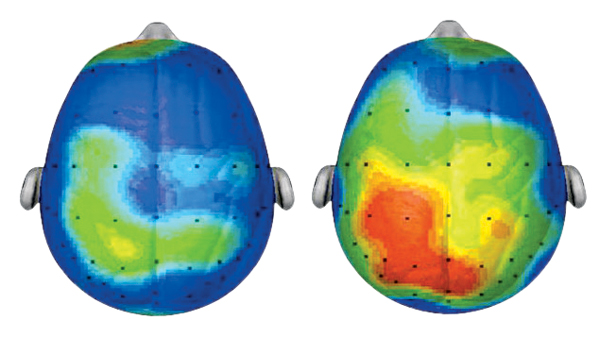Child’s Play

photograph by cheryl clegg
When Natick mom Kathleen Tullie read Spark, by Harvard associate professor of psychiatry John Ratey, she was immediately intrigued. In the book, Ratey looks at the effects of exercise on the brain, and concludes that physical activity is our best defense against attention deficit disorder, depression, and anxiety.
She was so moved by Ratey’s ideas that in 2009, Tullie—along with the author, four other moms, and, later, Reebok—created a before-school exercise program for students, now known as BOKS (Building Our Kids’ Success). More than 400 elementary schools across the country and abroad have embraced the concept.
Each session begins with a few minutes of free play, followed by a warmup. It then goes into running and sprints, and on to the “skill of the week,” before ending with a team-building or sportsmanship-teaching game and a cooldown composed of stretching and nutrition talks.

brain scans courtesy of dr. charles h. hillman, university of illinois at urbana-champaign
Proof of the program’s success can be seen in grade improvements and heard through parents and teachers. The National Institute on Out-of-School Time (NIOST) did a study of 1,500 kids in the program earlier this year. Among other findings, teachers said that kids are more focused and attentive on BOKS days. “There are many studies that attest that exercise improves concentration, decreases impulsivity, improves the ability for the memory system, and raises motivation,” Ratey says. And in a recent survey of kids involved in the program, 96 percent said they would do it again.
Other countries are taking notice, too: BOKS is ramping up its presence in Japan and Korea and expanding to Canada for the first time this year.


